We often hear about fashion designers, stylists, fashion editors… but what if you want to work in fashion but prefer something more towards the management side of the fashion industry?
You might be like me for example. When a decade ago I decided I wanted to get into the fashion industry, I was more interested in finding something that could combine my passion for fashion with the management side of it. I liked the idea of working on the business side and contributing to the success of a fashion company. I couldn’t see myself designing clothes or styling looks. That’s why I entered the industry in the e-commerce department at Alexander McQueen.
I remember when I was at the beginning of my job search in the fashion industry, I couldn’t find information about those management roles in the industry. People often discuss the role of fashion editors, designers, and stylists…But since I didn’t see myself in those, it was really hard to understand what role in fashion could fit me. So I am writing this article to give you some clarity about fashion management jobs if you are interested in working on the business side of the fashion industry.
While fashion is a creative industry, creativity is not the only driver of fashion brands. It doesn’t take only creative teams to run a successful fashion company, but also those who are more strategic and business-oriented. These people work on the business side of the fashion industry and fall into the category of fashion management jobs.
There are many different careers that fall into the “fashion management” category. Let’s discover some of the most popular roles, what are their responsibilities, and how to get started.
Fashion Management Jobs
Brand Manager
A fashion brand manager takes care of shaping and preserving the identity of a brand. They work on the business side of the brand, conducting analysis of the market, trends, customers, competitors, production, and inventory management. They also develop new business plans and strategies, manage budgets, and build relationships with the company’s stakeholders.
Due to the nature of their tasks, brand managers have to work closely with other departments – especially with buying, merchandising, and marketing teams.
Fashion Buyer
You might have noticed that not all the pieces of a collection are available in all stores. Well, the person who decides what to sell in a store is the buyer. The fashion buyer is an expert who analyzes the market, trends, customers’ behaviors, and previous sales to make buying decisions AKA deciding what pieces of the new collection to stock in a specific store. This job requires a combination of creativity and logical thinking: they need to understand trends and predict what customers will want to buy.
A fashion buyer is responsible for the following tasks:
Compile and review data to ensure accuracy for merchandising decisions, analyze weekly trading reports and identify strong/slow sellers to make the right buying choices, attend fashion shows to understand the trends of the coming seasons, attend showroom appointments to get in touch with the products and accessories, learn more about the fabrics, the colors, and the size, and place orders for the store, build connections with suppliers and form agreements on payments while organizing the purchase, and oversee the deliveries and stock levels of each store.
You can find buyers working for a single brand, say Gucci, who are responsible for choosing from the latest collection what products to stock in the Gucci store they represent. Other fashion buyers work for department stores such as Saks Fifth Avenue, Selfridges, La Rinascente…online retailers (Net-a-Porter, MyTheresa…) and visit showrooms of different brands (Prada, Fendi, etc) to decide what to stock in their stores or eCommerce.
Global fashion brands usually don’t have a single buyer; it is common to have buying teams where each buyer has his own niche and is assigned a certain product category: the womenswear buyer, menswear buyer, and accessories buyer. In addition, there are buyers who can be collection-based only and responsible for a particular region – some for a US market, others for Europe or Asia, and so on.
Merchandiser
The careers of a fashion buyer and merchandiser go hand-in-hand, and they could change or better interchange their job titles from one company to the other. Therefore, if you want to work as a fashion buyer you can keep an eye open on merchandising positions and vice versa.
There are two types of fashion merchandisers: collection merchandisers, and retail merchandisers.
A collection merchandiser oversees the whole process of the collection development, working with designers to decide on the collection grid; analyzes past sales and trends while predicting what customers will want in the future to build the collection plan that the designers will use, and decides on price targets, reviews garment samples, works with marketing and package design teams to develop product messages and packaging, and provides regional teams with product knowledge.
The retail merchandiser‘s role is very much similar to the role of the buyer. They take care of ensuring the commercial and financial availability of a garment or product in-store, to ensure stock is flowing and is available where it will best sell.
Fashion Marketing
Fashion marketing is about promoting products and services to the target audience with the goal of boosting sales and making profits.
This is a very broad field that includes many narrow jobs: digital marketing, email marketing, merchandising, trend forecasting, communication and public relations, social media, e-commerce, etc.
But if we look at the role of a fashion marketer in general, this is what they do: conduct competitor and market research to look for best and innovative practices, ideate and prepare marketing materials and campaigns, test and set up ads and conduct client targeting, plan and manage projects, special launches, and events, analyze the campaigns, KPIs, and ROI to measure their success and improve performance, prepares reports, build relationships with internal and external stakeholders, take care of the documentation, imagery, and files, and presentations to teams and managers, and assist with the optimization of content for SEO.
E-commerce Manager
This may be a possible role for you if you are interested in the digital side of fashion management. E-commerce managers take care of and monitor daily website performance, provide recommendations on development-related content and enhancement of customer experience, monitor and analyze product and sales trends, traffic, and site (KPIs), coordinate the launch of products on the brand’s website, supervise campaign photoshoots, and collaborate with the Marketing team to effectively drive traffic and revenue to the website.
Product Manager
The product development department manages, as per the title, the development of the specific product category (accessories, women’s, shoes…) from conceptual design, sample mock-up, and interaction with suppliers and other departments, to final production. The product developer works with manufacturers by monitoring supplier performance and delivery schedule, negotiating prices, analyzing product cost, working with internal and external designers for design modification, and recommending manufacturing techniques, construction, and materials to reduce price and/or improve manufacturability while maintaining design and quality and manages the prototyping and sampling phases.
Textile Manager
A textile manager is responsible for overseeing all stages of the textile manufacturing process, ensuring that the process runs smoothly, is cost-effective, and delivers products to the right standard and on time.
Textile managers visit factories and meet with suppliers to agree on quality standards, price, delivery times, and ethical production issues, work with maintenance technicians to prevent and overcome any mistakes in production, work with in-house design and sales teams, buyers and quality control departments, and manage orders from retail and wholesale customers.
How to get a job in fashion management
Look for fashion management internships
Whatever fashion management job you are interested in, there is an internship out there for you. So if you want to get into fashion management, the first thing to get started is to look for an internship in buying, marketing, product development, etc.
The official way to find internship opportunities is by visiting the official website of the fashion brand or Group to see if they have any open vacancies. Another option is LinkedIn, which is the most popular and best social media platform to look for fashion jobs.
There is also an unconventional strategy, which is my favorite, to get a fashion management job or internship: emailing the companies directly. See, you don’t want to waste time and opportunities by waiting for brands to post buying jobs online. Be proactive and cold-email them instead and submit a spontaneous application with a strong resume and a customized cover letter. Companies love that; they appreciate people who think outside of the box.
I teach more about emailing companies directly as well as other unconventional strategies inside this free masterclass.
Learn Excel
Fashion management is a broad field, so the skills required vary depending on the specific job. However, being part of the business side of the industry mainly, all the fashion management careers listed above require Excel and use it on a daily basis.
Indeed, Excel is the most requested skill to work in fashion for anyone – interns, assistants, and managers -, especially for those who seek a career in fashion management.
Fashion managers use Excel for a variety of tasks, such as: analyzing sales, inventory management, budgeting, creating production schedules, monitoring product deliveries, and so on.
Have you noticed during your job search that 90% of fashion jobs and internships posted online mention MS Excel in the requirements?
So if you feel like you lack proficiency in Excel, it’s time to learn how to use this program. Need a coach for this who will walk you through it? (Me 🙋🏻♀️)
Register for my free Excel webinar: 4 tricks to impress your fashion boss (or recruiters), and land the job or internship of your dreams.



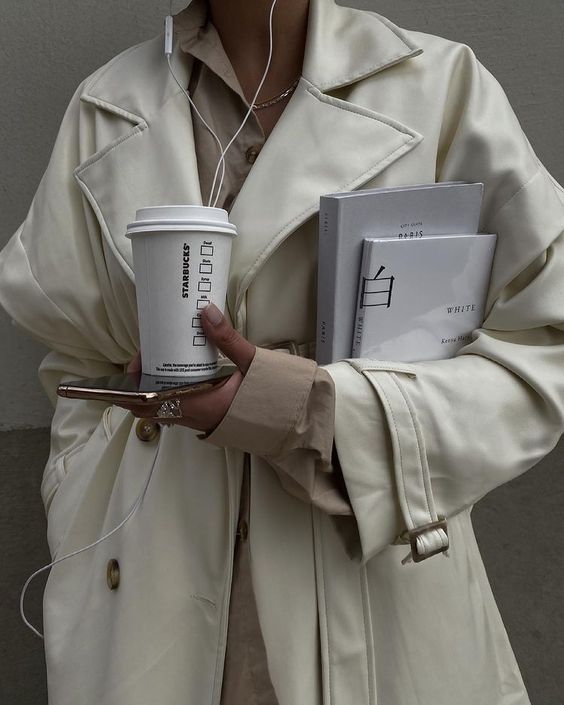
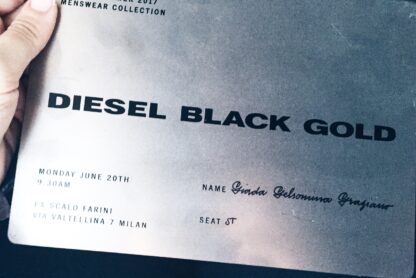
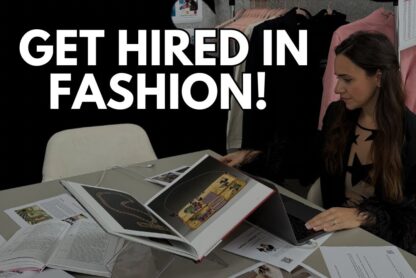
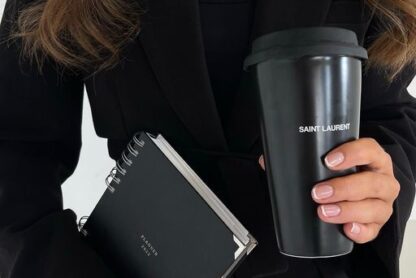
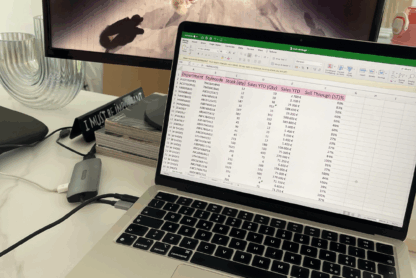
Great article on fashion management jobs! As someone who’s interested in pursuing a career in this field, I found your insights on the skills and education required to be particularly helpful. Thanks for sharing your expertise and providing practical advice for aspiring fashion managers!